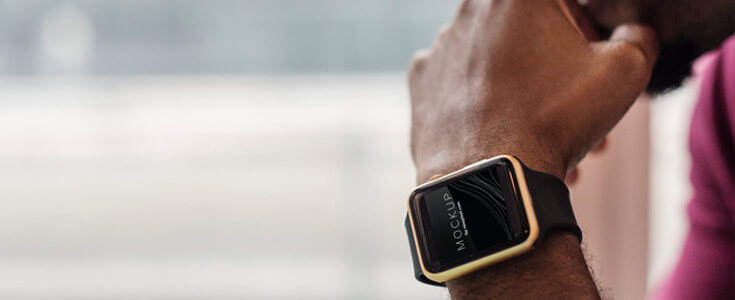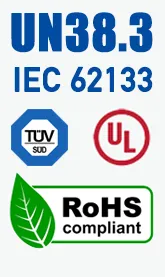
Lithium Ion Polymer Battery for Marketable Wearable Products
Big brands still have a relatively large dominance in the world, especially the earliest launcher of the bracelet, Fitbit, and Jawbone is also a great brand in the field of bracelets. (Curved lithium ion polymer batteries are fully utilized in the bracelet market). The function of the bracelet is relatively monotonous, the entry threshold is not high, the market competition is fierce, and the user demand is not so strong.
Besides, as an electronic device on the wrist, the failure rate has remained high and requires a robust after-sales service guarantee. It is precise because Fitbit is unable to provide sufficient after-sales service guarantee in China, so the first-mover advantage was handed over to Mi.
Fitbit bracelet
Watch consumer market
The watch industry is also dominated by big brands, Apple's Apple Watch, and Samsung's smartwatches. The global sales of these two watches are still acceptable. But this is because the brand's overall driving effect, rather than the strength of the watch itself, the function of the watch is still relatively monotonous, the market feedback is more general. (Small lithium ion polymer battery provides longer watch time)
Apple Watch
Outlook for the consumer market
Last year, Fitbit acquired the wearable payment technology platform of Coin, a well-known financial technology company in Silicon Valley, in the United States, intending to enter the mobile payment field. Apple Pay may also appear on Apple Watch.
Competition in the next consumer-grade wearable sector may occur on payments. The pressure from big brands and cottage brands will make entrepreneurs suffer a second attack, and consumer wearable products will be complicated.
The characteristics and current status of the professional market
Professional medical grade wearable products have great market potential and have numerous segments.
There is no competition between market segments, each market segment is large, and the health needs of consumers are just needed.
There are big companies in the field, but there are still a lot of startups involved.
Ordinary consumer wearable products cannot compete in the professional medical field.
Products in the medical field need to be certified by medical institutions, especially FDA certification, and there are specific barriers. (The medical field also requires lithium ion polymer battery related certifications UL, CE, IEC62133, UN38.3, MSDS)
AliveCor's Mobile ECG product
Opportunities and recommendations
Professional medical grade wearables are rare in China, or a vast blue ocean.
The segmentation of the US medical wearables sector is already apparent. If Chinese companies can learn from their experience, find breakthroughs, or work with companies with advantages in the United States to expand their markets in China, there will be tremendous opportunities.China's wearable devices claim to have medical monitoring but still belong to the consumer level, not the therapeutic level.
There is a significant demand for mobile and remote health monitoring in the medical field, especially now that hospitals place particular emphasis on continuous patient care.
(This requires medical wearables to be equipped with lightweight, high-density lithium polymer batteries)Innovators should take this opportunity and actively seek to work with medical experts in specific fields. On the contrary, medical experts can also actively cooperate with wearable manufacturers. The market prospect of this vast blue ocean is worth looking forward to.
Lithium Ion Polymer Battery by Capacity
10mAh + 500mAh + 1000mAh + 6000mAh + 100mAh + 600mAh + 2000mAh + 7000mAh + 200mAh + 700mAh + 3000mAh + 8000mAh + 300mAh + 800mAh + 4000mAh + 9000mAh + 400mAh + 900mAh + 5000mAh + 10000mAh
